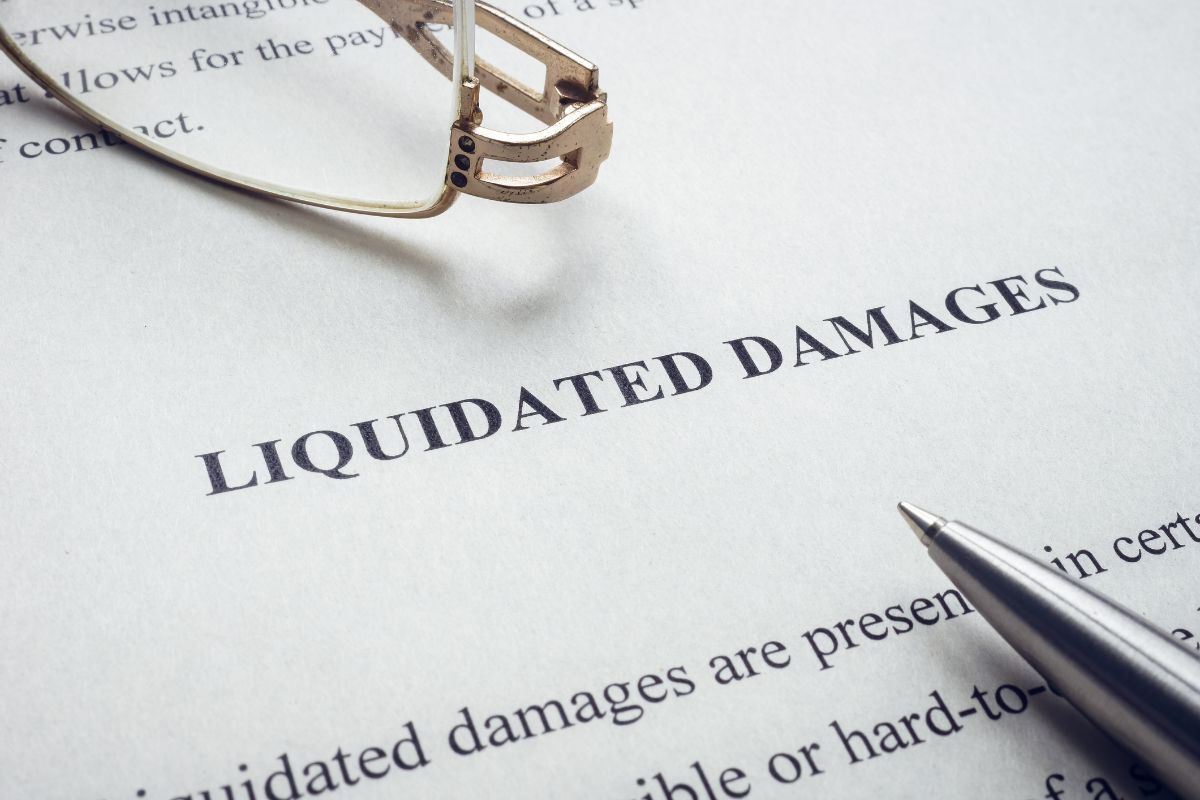Most real estate transactions follow a structured process to meet the needs of both the home seller and buyer. If everything goes according to plan, everyone wins.
When something goes wrong in the transaction, though, it might lead to differences between the parties and possible harm.
Real estate brokers and transaction processes have processes in place to compensate for damages caused to a party.
This essay delves into the significance of liquidated damages and their function in real estate transactions.
Liquidated Damages: What Are They?
A purchase agreement’s liquidated damages clause stipulates that if the buyer breaches the agreement, they will be liable for a specific amount to the seller.
For instance, if a $5,000 escrow deposit is made, the buyer and seller sign the liquidated damages clause, and the buyer later breaches the agreement, the seller will be entitled to the $5,000 in liquidated damages.
Whether the vendor has indeed suffered a loss exceeding or falling short of $5,000 is immaterial. The clause’s objective is to predetermine the damages so that actual loss evidence is not required.
What is liquidation?
Liquidation is the process of ending a business and dividing its assets among interested parties in finance and economics. Insolvency is a common occurrence where a business fails to meet its obligations on time. When a business closes, its residual assets are used to pay creditors and shareholders first, according to the priority of their claims. General partners can be liquidated.
What is a Company’s Liquidation?
When a business can no longer pay its debts, it goes into liquidation, selling its assets. Periodically, the business deregisters and stops all operations. The purpose of selling the assets is to satisfy the demands of different parties, including shareholders and creditors.
Since not all assets will sell for their full worth, the business and bankruptcy courts will calculate the property’s projected recovery value before allocating it to creditors.
How Liquidated Damages Work
If both parties accept a real estate offer, the seller will demand that the buyer provide financial security by depositing a sum of money into an escrow account, usually equivalent to 3% of the purchase price. This deposit serves to offset any losses a seller might suffer if the buyer backs out of the agreement.
The losses incurred by pulling out of an agreement could be difficult to see at first. To see the bigger picture and how these costs build up for the house seller, let’s take a closer look.
Are Liquidated Damages Prohibited by Law?
A clause in a contract liquidating damages for breach of the contract is valid unless the party seeking to invalidate it proves that the clause was unreasonable in light of the circumstances in place at the time the contract was made, according to the amended section 1671 subs. (b).
Why Your Contract Should Have a Liquidated Damages Clause
It Makes Resolving a Contract Violation Easier
Should a breach occur, settling the case will be less difficult if you and your buyer agree on a liquidated damages clause that specifies appropriate damage levels.
If you fail to include this paragraph in your purchase agreement, in order to recover monetary damages for your buyer’s breach, you will need to demonstrate the extent of your financial loss.
It prevents you from having to go for legal advice in the event of a breach.
If the buyer decides to withdraw their offer without this provision in your purchase agreement, you will have to seek legal counsel to settle the dispute.
Legal disputes can be expensive for both you and the buyer. However, if the breach has a liquidated damages clause, both parties have already agreed upon the terms of the breach; therefore, you might not need to hire an attorney.
If the parties are unable to reach a consensus over the outstanding amount, arbitration or legal intervention may be required.
If There Is a Contract Breach, It May Help You Get Your Deposit Back
Typically, the buyer’s deposit is kept in escrow until the transaction is finished. The damages clause in your purchase agreement allows you to claim your deposit back if the buyer breaches the terms. But before releasing any money, escrow companies typically need both parties to sign an agreement to accomplish this. This clause will assist you in collecting if the buyer is being recalcitrant.
FAQs on Liquidated Damages Real Estate:
Liquidated Damages: How Are They Negotiated?
Balancing the interests of both parties is a crucial tactic in liquidated damages negotiations. The liquidated damages must be substantial enough to compensate the wronged party without being unjust or hindering contract formation.
When is It Not Possible to Enforce Liquidated Damages?
As of the contract signing date, the liquidated damages must represent an attempt to project the future value of those real damages in terms of money. Liquidated damages are completely unenforceable under that forward-looking view if they are deemed unreasonable (Civ. Code 1671, Pub. Cont.).
What distinguishes liquidated damages from delayed damages?
Delay damages aim to compensate employers for additional costs and revenue lost due to the delay. The JCT suite of documents includes contracts with liquidated damages, which are estimated losses rather than percentages.
Last Words:
In every real estate transaction, agents must ensure that the seller has the last line of defense in the form of a liquidated damages clause in the contract. The seller may withdraw from the agreement and keep the escrow money to cover costs incurred throughout the closing procedure if the buyer backs out.
Also, Read:
- Medical malpractice and negligence Litigation – Overview
- How To File an Unlawful Arrest Lawsuit
- Medical malpractice and negligence Litigation – Overview
- FIRST TIME HOME BUYER ILLINOIS: Programs, Loans & Grants Assistance In 2022
- Personal injury in Baltimore
- HOW TO BUY A HOUSE IN CALIFORNIA In 2022 (Detailed Guide & Tips)



